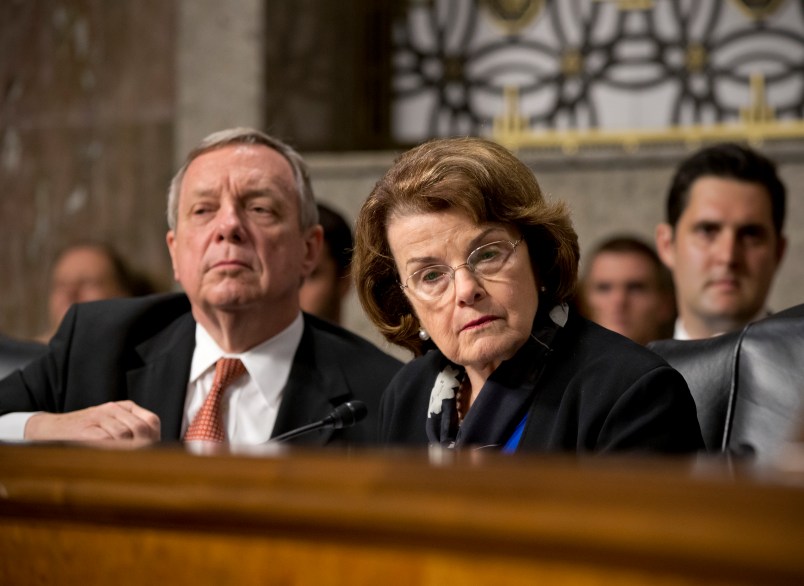Seven nominees to federal courts in Georgia came before the Senate Judiciary Committee on Tuesday, but all eyes were on one of them: Michael Boggs, selected by President Barack Obama to serve as a U.S. district court judge.
The Georgia Court of Appeals judge has come under fierce criticism from progressive advocates for a swath of votes from 2000 to 2004 as a Georgia state legislator against abortion rights, same-sex marriage and to retain the state’s old flag which contained the Confederate battle flag.
Democratic senators took the lead in grilling Boggs.
“I was offended by the flag, Senator,” he told Senate Majority Whip Dick Durbin (D-IL) under questioning, saying it was a “terribly agonizing” decision to choose between his own conscience and the will of his constituents, whom he suggested wanted to keep the Confederate-linked flag. But he said: “I’m glad the flag was changed.”
Boggs said he was very sensitive to the views of African-Americans at the time and that those who know him recognize his vote intended no disrespect to them. “If someone is accusing someone of being a racist, I don’t know how you disprove that,” he said.
Amid questioning from Sen. Richard Blumenthal (D-CT), Boggs declined to reveal his positions on abortion rights and marriage, saying they’re “irrelevant” to how he’d act as a federal judge and that it would be “inappropriate” for a judge to discuss personal views.
He also sought to distance himself from numerous controversial votes he took.
“I don’t think my legislative record that’s over a decade old is indicative of what kind of judge I’d be [on the federal court],” Boggs said.
He disowned one bill he voted for, which would disclose the number of abortions performed by doctors, which critics said would endanger their safety. “In light of what I subsequently learned, I don’t think it would be appropriate to” do that, Boggs said.
Notably, when asked about marriage rights, Boggs said his views “may or may not have changed” since he voted for a state constitutional amendment to ban same-sex marriage.
Senate Judiciary Chairman Patrick Leahy (D-VT) pointed out that Boggs and the other six nominees Tuesday were negotiated as a package deal between Obama and Georgia’s two Republican senators, Johnny Isakson and Saxby Chambliss.
“I have noted before that there is no ‘deal’ negotiated with me as chairman of the Senate Judiciary Committee or with any of the other Senators,” Leahy said in written testimony. “The constitutional responsibility of advice and consent resides with each individual Senator, and there is no such thing as a binding deal that negates each Senator’s responsibility to determine the fitness of a judicial nominee for a lifetime appointment.”
Boggs promised Sen. Amy Klobuchar (D-MN) he’d abide by Supreme Court precedent when asked about rulings on contraception (Griswold v. Connecticut), federal treatment of gay married couples (Windsor v. US) and other gay rights rulings.
Sen. Dianne Feinstein (D-CA) voiced her skepticism with Boggs’ promises to respect precedent, noting that nominees frequently make that promise to the Senate but behave differently when they become judges.
Boggs faced friendlier questioning from the committee’s ranking member,
Sen. Chuck Grassley (R-IA), who asked about his judicial philosophy but
didn’t bring up the other contentious issues.
This article has been updated.










